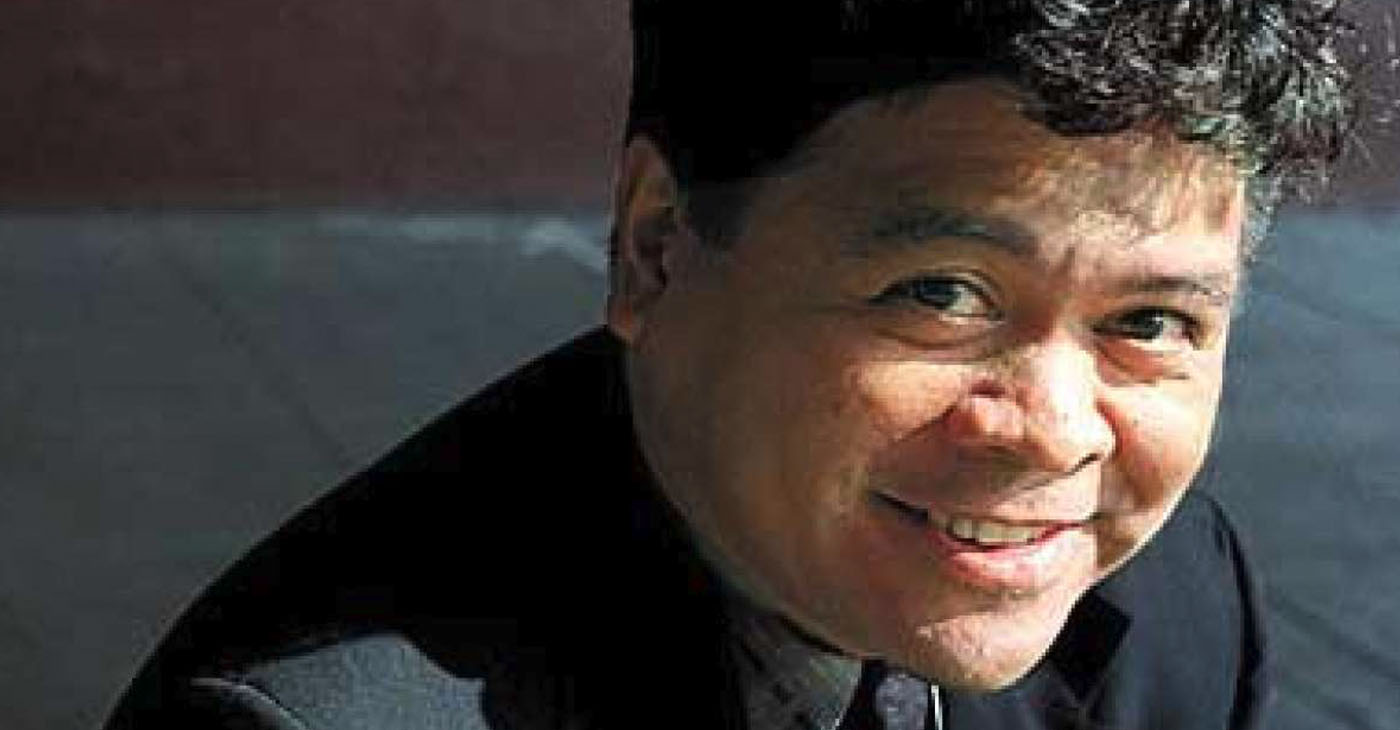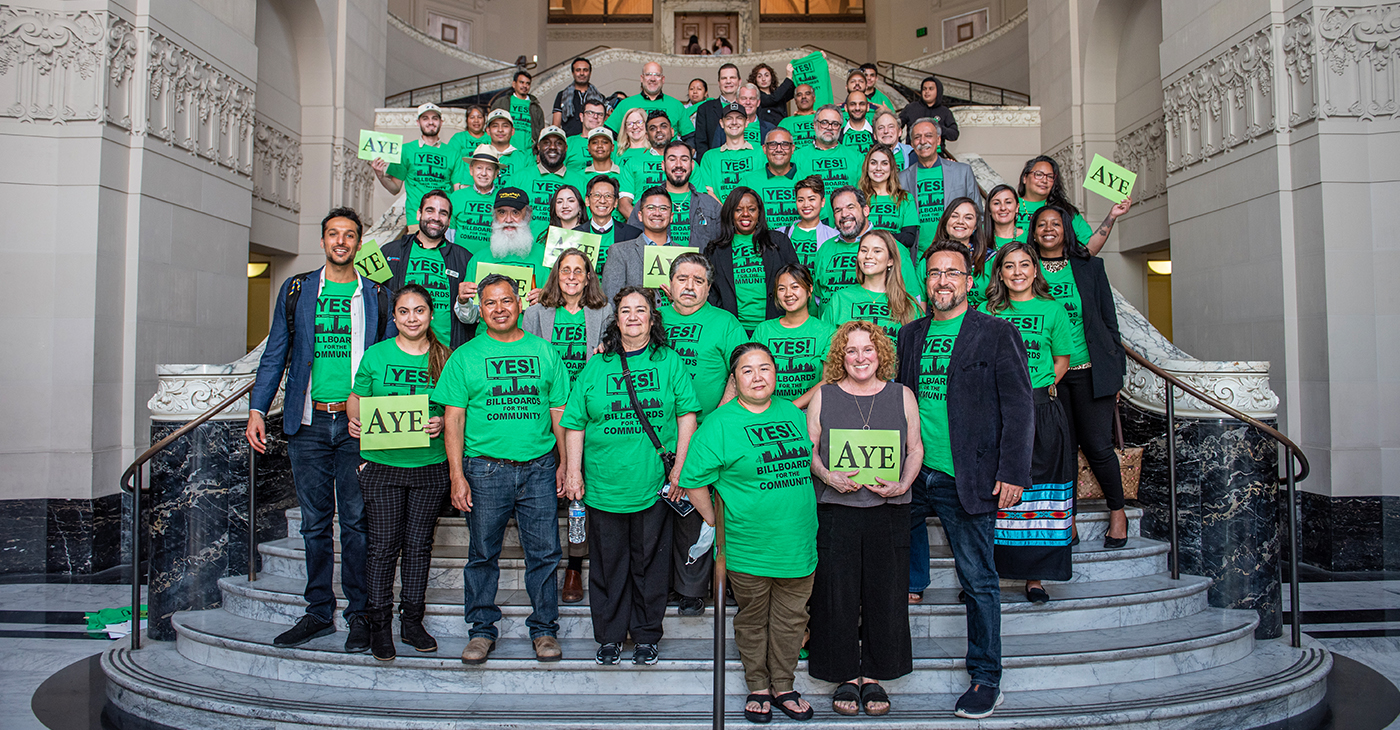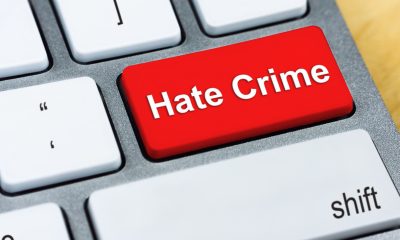Activism
COMMENTARY: The AAPI Heritage Month Connection
The 2020 Census reports 19.9 million people (6% of all respondents) identified as Asian alone in 2020, up from 14.7 million people (4.8%) in 2010. A big increase was in the Asian “in combination” figure. Approximately 4.1 million respondents identified as Asian in combination with another race group. Do you think there’s another H.E.R. amongst them? Or an Anderson .Paak? More than one?

By Emil Guillermo
It’s Asian American/Pacific Islander Heritage month.
Go hug your brothers and sisters. There’s a lot of them.
The singer H.E.R. from Vallejo. The Congressman Bobby Scott (D.-Va.). The other half of Silk Sonic, Anderson .Paak, actress Denyce Lawton (“House of Payne”). And let’s not forget The Rock, the East Bay’s own Dwayne Johnson, and of course, Tiger Woods.
They are no doubt celebrating May as Asian American Pacific Islander Heritage Month, because they’re all part Asian. It’s in their blood.
Understand that when people talk about Asian American, the group is a whole lot more diverse and inclusive than you think.
H.E.R. a/k/a Gabriella Sarmiento Wilson, half-Black and half-Filipino, is a powerful reminder of our common humanity.
She won a Grammy in 2021 for Song of the Year for the George Floyd-inspired protest song, “I Can’t Breathe.”
When singers like H.E.R. sing passionately about their lives and ours, they embody an ideal vision of what can happen when we take a love interest in one another. It’s all in the heart and soul.
Of course, not all stories sound like fairy tales.
Rapper Anderson .Paak (and yes the .Paak is correct) knows the blues. He was born in Oxnard, Calif. to a bi-racial Korean woman born during the Korean American War. Anderson never met his father. He was abandoned at age 7 and raised in an orphanage until he was adopted by a Black family in Los Angeles.
He grew his musical chops as a teen, gained the attention of Dr. Dre, and made a breakthrough hit in 2018. But it wasn’t until 2021 that he reached true superstar status when he connected with Bruno Mars, another biracial Asian (Filipino, Jewish, Puerto Rican) artist to form the duo Silk Sonic. Their single, “Leave the Door Open,” won Song of the Year and Record of the Year at the 64th Grammy Awards.
Those are the Asian/Black success stories right under our noses. Pop culture examples. It’s more of a thing than you think. Just know that when you cheer Hayward-born Dwayne Johnson or Tiger Woods, Asian Americans are seeing Johnson’s Samoan mom. Or Tiger’s Thai mother, Tida. Asian Americans are cheering alongside you.
Expect it to happen more and more compared to previous generations.
The 2020 Census reports 19.9 million people (6% of all respondents) identified as Asian alone in 2020, up from 14.7 million people (4.8%) in 2010.
A big increase was in the Asian “in combination” figure. Approximately 4.1 million respondents identified as Asian in combination with another race group. Do you think there’s another H.E.R. amongst them? Or an Anderson .Paak? More than one?
The growth today is reflective of an openness in our youth-oriented culture.
But the generation before were race mixers too.
They just had to overcome racist laws like Virginia’s Racial Integrity Act of 1924 that made it illegal to intermarry. In the 1920s and 1930s, the anti-mixed-marriage, or anti-miscegenation laws, spread throughout the country. Even in California.
And it didn’t just ban Blacks from intermarrying. It was for Asians, too. Chinese, Japanese, Filipinos were all forbidden from marrying whites and expected to marry “their own kind.”
Only in 1967 did the Supreme Court decide that the anti-intermarriage laws violated he Equal Protection Clause of the U.S. Constitution. The Loving case (involving the incarceration of the Black/white couple, Mildred and Richard Loving) was later used in the legal justification for same-sex marriage.
Hard to imagine we’d ever take away our rights to marry. But given the current climate with the religious right hellbent on reversing settled law like on abortion rights, we must stay vigilant.
A good way to start is by celebrating our diversity and remembering Asian American Pacific Islander Heritage Month.
NOTE: I’ll talk about this on “Emil Amok’s Takeout,” my micro-talk show. Live @2p Pacific. Livestream on Facebook; my YouTube channel; and Twitter. Catch the recordings on www.amok.com.
Activism
Oakland Post: Week of July 24 – 30, 2024
The printed Weekly Edition of the Oakland Post: Week of July 24 – 30, 2024

To enlarge your view of this issue, use the slider, magnifying glass icon or full page icon in the lower right corner of the browser window. ![]()
Activism
Oakland Post: Week of July 17 -23, 2024
The printed Weekly Edition of the Oakland Post: Week of July 17 -23, 2024

To enlarge your view of this issue, use the slider, magnifying glass icon or full page icon in the lower right corner of the browser window. ![]()
Activism
Community Celebrates Historic Oakland Billboard Agreements
We, the Oakland Billboard Economic Development Coalition, which includes Oakland’s six leading community health clinics, all ethnic chambers of commerce, and top community-based economic development organizations – celebrate the historic billboard agreements approved last year by the Oakland City Council. We have fought for this opportunity against the billboard monopoly, against Clear Channel, for five years. The agreements approved by Council set the bar for community benefits – nearly $70 Million over their lifetime, more than 23 times the total paid by all previous Clear Channel relocation agreements in Oakland combined.

Grand Jury Report Incorrect – Council & Community Benefit
We, the Oakland Billboard Economic Development Coalition, which includes Oakland’s six leading community health clinics, all ethnic chambers of commerce, and top community-based economic development organizations – celebrate the historic billboard agreements approved last year by the Oakland City Council. We have fought for this opportunity against the billboard monopoly, against Clear Channel, for five years. The agreements approved by Council set the bar for community benefits – nearly $70 Million over their lifetime, more than 23 times the total paid by all previous Clear Channel relocation agreements in Oakland combined.
Unfortunately, a recent flawed Grand Jury report got it wrong, so we feel compelled to correct the record:
- Regarding the claim that the decision was made hastily, the report itself belies that claim. The process was five years in the making, with two and a half years from the first City Council hearing to the final vote. Along the way, as the report describes, there were multiple Planning Commission hearings, public stakeholder outreach meetings, a Council Committee meeting, and then a vote by the full Council. Not only was this not hasty, it had far more scrutiny than any of the previous relocation agreements approved by the City with Clear Channel, all of which provide 1/23 of the benefits of the Becker/OFI agreements approved by the Council.
- More importantly, the agreements will actually bring millions to the City and community, nearly $70M to be exact, 23 times the previous Clear Channel relocation agreements combined. They certainly will not cost the city money, especially since nothing would have been on the table at all if our Coalition had not been fighting for it. Right before the decisive City Council Committee hearing, in the final weeks before the full Council vote, there was a hastily submitted last-minute “proposal” by Clear Channel that was debunked as based on non-legal and non-economically viable sites, and relying entirely on the endorsement of a consultant that boasts Clear Channel as their biggest client and whose decisions map to Clear Channel’s monopolistic interests all over the country. Some City staff believed these unrealistic numbers based on false premises, and, since they only interviewed City staff, the Grand Jury report reiterated this misinformation, but it was just part of Clear Channel’s tried and true monopolistic practices of seeking to derail agreements that actually set the new standard for billboard community benefits. Furthermore, our proposals are not mutually exclusive – if Clear Channel’s proposal was real, why had they not brought it forward previously? Why have they not brought it forward since? Because it was not a real proposal – it was nothing but smoke and mirrors, as the Clear Channel’s former Vice President stated publicly at Council.
Speaking on behalf of the community health clinics that are the primary beneficiaries of the billboard funding, La Clinica de la Raza CEO Jane Garcia, states: “In this case, the City Council did the right thing – listening to the community that fought for five years to create this opportunity that is offering the City and community more than twenty times what previous billboard relocation agreements have offered.”
Oakland Billboard Economic Development Coalition
| Native American Health Center | La Clínica de la Raza | West Oakland Health Center |
| Asian Health Services | Oakland LGBTQ Center | Roots Community Health Center |
| The Unity Council | Black Cultural Zone | Visit Oakland |
| Oakland African American Chamber of Commerce | Oakland Chinatown Chamber of Commerce | Oakland Vietnamese Chamber of Commerce |
| Oakland Latino Chamber of Commerce | Building Trades of Alameda County | (partial list) |
-

 Arts and Culture3 weeks ago
Arts and Culture3 weeks agoRooted in Tradition: The Intricate History of Black Hair Braiding
-

 Bay Area4 weeks ago
Bay Area4 weeks ago“I Will Not Be Bullied,” Says Oakland Mayor Sheng Thao
-

 Bay Area2 weeks ago
Bay Area2 weeks agoPG&E Increases Rates While Bay Area Households Are Struggling to Stay Afloat
-

 Business3 weeks ago
Business3 weeks agoGov Newsom: Raising Fast Food Minimum Wage to $20 Pays Off as Jobs Multiply in Industry
-

 Activism4 weeks ago
Activism4 weeks agoOpponents of Mayor Sheng Thao Are Calling on Her to Resign Following FBI Raid
-

 Community1 week ago
Community1 week agoHundreds Come to Jehovah’s Witnesses’ Assembly Hall for Three-Day Program of ‘Good News’ in Fremont
-

 Bay Area2 weeks ago
Bay Area2 weeks agoJuneteenth Mass Shooting Suspect Charge with Multiple Counts of Felony Assault by Alameda County DA Pamela Price
-

 Activism4 weeks ago
Activism4 weeks agoOakland Coliseum Sale to AASEG: A Model for Community Development and Inclusion





















































